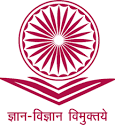Master of Arts
About Program
The Master of Arts (MA) is a two-year postgraduate degree offered in a wide range of humanities, social sciences, and liberal arts disciplines. It provides students with a deep and critical understanding of their chosen field, along with research skills, analytical thinking, and academic writing abilities.\\r\\n\\r\\nThis program is ideal for those looking to build a career in academia, civil services, writing, social work, media, teaching, or policy-making. It encourages independent thinking and in-depth engagement with culture, society, language, history, politics, and philosophy.\\r\\n\\r\\n
Master of Arts Program Accreditations:


